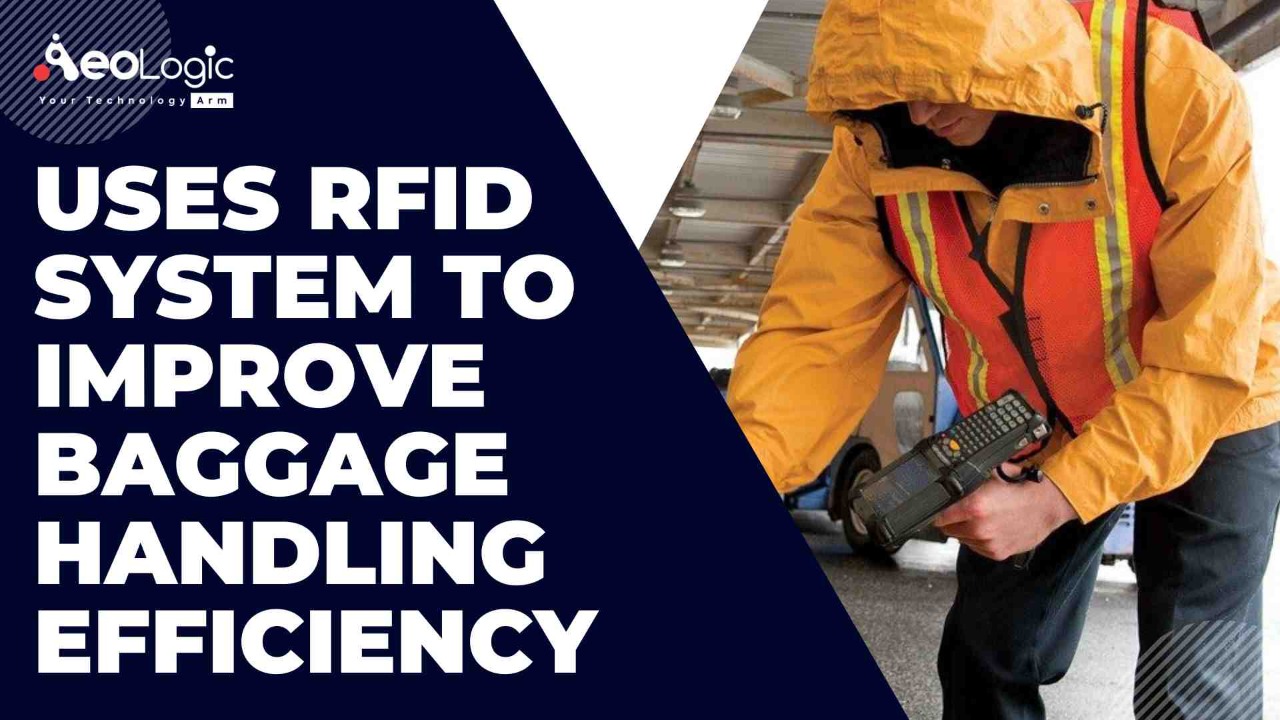Travel and transportation are impacting a broad spectrum of industries. The airline industry is managing more than 2 billion passengers yearly. A key challenge to the industry, equally in customer satisfaction and security. That is, tracking passenger baggage. To fulfill this, airports are deploying an RFID system for baggage handling. Meeting security measures for baggage matching can delay departures substantially. Hence impacting cost efficiencies and customer satisfaction. Cost of lost or mishandled baggage and passenger traffic monitoring are major concerns in the airline industry.
Also read: How RFID Solutions Help in Inventory Management
The balance of improved security standards and customer convenience is becoming increasingly problematic to accomplish with the rise of new fears that terrorism poses. With airlines and airports continuing to be vulnerable to threats, one of the verticals where the maximum time is spent is check-in for passengers and baggage handling for airport/airline staff. The airline industry is under relentless pressure to enhance customer service, safety, and satisfaction. All while streamlining the system of passenger travel.
Several technologies have been incorporated to fasten these processes. However, one technology is having the potential to revolutionize baggage handling techniques. It is Radio-frequency identification technology (RFID). RFID system for baggage handling is used to improve the ability for baggage tracking, dispatching, and conveyance. To improve the management efficiency and the passengers’ satisfaction. The RFID-enabled system offers baggage handlers and airport operators real-time and historical records and-track data. Therefore, providing an instant overview of the position of bags in ULDs and dollies.
Let us look at the common issues passengers are facing at the airport.
Issues faced in Airports
- Increased passenger and luggage traffic
- Assure safety and security, with less cost and impact on the customer.
- Manual examination of the baggage is a monotonous task and tends to have errors.
- Higher labor cost & waste of time.
- Misplaced bags or lost baggage.
- Identifying the right bag with the right plane is difficult.
- Unsatisfied customers i.e. Crowded Check-in queues, and long wait lines encourage passengers to choose other airlines.
- Difficulty in monitoring passenger traffic.
- Labor & transportation costs for rerouting the bag and delivering it to the passenger or replacement costs to reimburse the owner for the lost luggage.
- Lost revenue.
- Flight delay because of mishandled baggage.
Improving passenger experience with automation technologies
Although the RFID system for baggage handling is solely relevant to hardcore airport operations that are oblivious to passengers. However, its applications can indeed interface with passengers directly for a smooth travel experience. Nowadays, manufacturers are also developing dual RFID and barcode reader system. This will eventually help in allowing passengers to home-print their luggage labels for self-check-in. All these innovations are reducing the processing time at airline check-in counters. Hence, delivering a more enjoyable pre-flight experience for passengers.
Also read: How RFID is Helping Solve Luggage Problems at Airports
As the technology is becoming increasingly advanced, the next stage would be integrating RFID solutions among airlines and airports. Subsequently, baggage tracking to the next level. And lost or mishandled baggage may then become a phenomenon of the past.
Advantages of RFID in Airport Management
- Rapid location and removal of bags help in keeping planes on schedule, which can save airlines thousands of dollars.
- Higher productivity for inbound and outbound cargo shipments.
- Increasing visibility decreases the manual labor associated with locating cargo in holding areas, also improving accuracy.
- Reducing plane delays caused by lost baggage.
- Decreased wait times in queues helping in increasing customer satisfaction.
- Decreased number of mishandled bags.
- Enhanced baggage process visibility to airlines and handlers.
- Better security with an improved reconciliation system.
- Reduced demand for manual encoding because of a completely automated system.
- Better staff productivity & efficiency.
- Improved Customer Satisfaction.
Conclusion
With immense pressure to operate profitably and heighten security, the airline industry must turn to new technology. Such as RFID system for baggage handling can complement existing bar code technology. Subsequently, finding the improved operational processes it requires continued operations in a more competitive environment. Implementation of RFID drastically helps in improving efficiency and lowering operational costs. Thus, avoiding the cost of lost baggage & delayed planes and pointing to a positive ROI.
If you are interested in elevating your businesses using advanced technologies, connect with our industry experts at Aeologic Technologies.
FAQs
What are the characteristics of a baggage handling system?
A baggage handling system (BHS) is made of different processes and checks. A BHS is devised to count bags, check the weights of bags, balance loads, screen suitcases for security measures, transport bags with an airport conveyor belt system, and verify bag information automatically.
How does RFID baggage tracking operate?
RFID applies radio-frequency electromagnetic fields to transmit data and automatically recognizes and tracks baggage tags. RFID technology is allowing bags for recognizing and tracking without the demand for human intervention.









